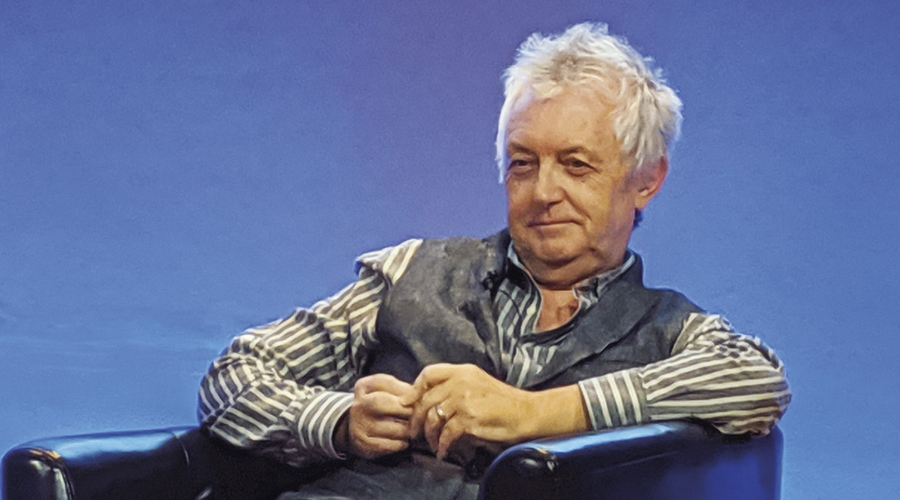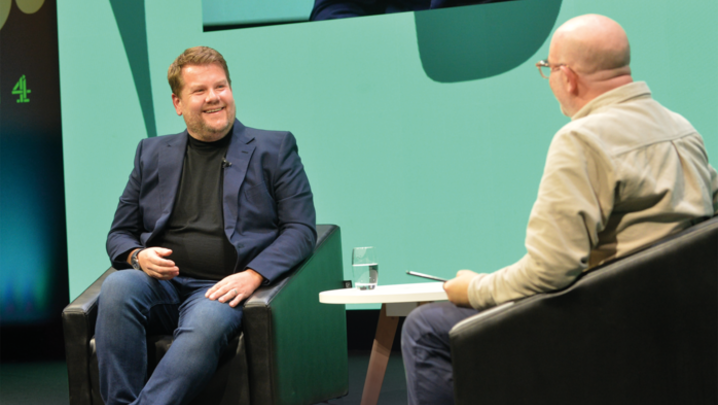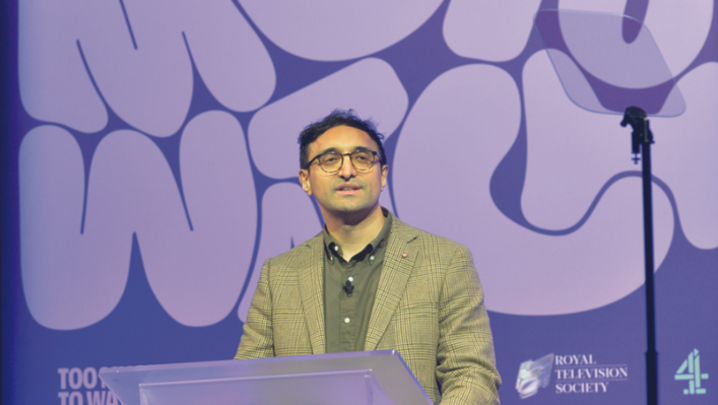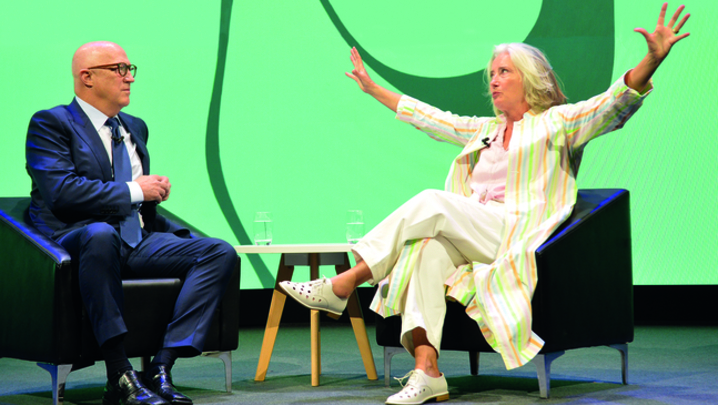Writer and producer Mal Young has revealed how he made $200,000 in a few seconds – by swearing.
The showrunner, whose credits range from Brookside and EastEnders to Holby City and Doctor Who, was giving an RTS Midlands drama production masterclass in Birmingham, where he explained the process of piloting a show in the hyper-competitive US TV market.
He had moved to Los Angeles after leaving the BBC, where he was responsible for such programmes as EastEnders and Casualty. In 2008, Young pitched a drama, Austin Golden Hour, to the CW Network. The storyline was based on a group of young Texan paramedics trying to save lives in the vital hour following traumatic injury.
He explained: “It played out in real time, like 24 meets ER. I wrote 18 drafts of the pilot script, which is about average.
“They rang me to say the pilot had been green-lit but said it was going to be low budget – only $2.8m. I said, ‘Fucking hell!’, meaning ‘That much?’ But they thought I was complaining and said, ‘Oh, let’s go with $3m’. It’s the easiest $200,000 I’ve ever made.”
Stunts were elaborate and, by British standards, expensive, and the show was immediately subjected to some thorough market research. “We blew things up and had helicopters,” Young recalled. “We finished the final cut at noon. At 2:00pm, they showed it to a panel of people paid to give their opinions on every line of dialogue and what the characters were wearing.
“The channel [executives] watched from behind a glass wall and said ‘Cut that scene’ if it didn’t get a good reaction. It was all very picked over and horrible. It took a year of my life and $3m. Then, they just said: ‘No, we’re not going with it’.”
Young noted that, on average, a network such as CBS takes 600 pitches a season and buys up to 200 scripts. Of those, 15 are made into pilots. Five are picked up for a series. Two or three might make it past episode three before the show is axed.
He added: “It is changing, though. Streaming channels bypass the pilot system because it’s so expensive, and go straight to series, relying on big-name writers and stars. I can be sitting in reception, waiting to pitch, next to Reese Witherspoon and Laura Dern with their production companies.
“Pitching is tough. They ask: ‘Why this, why now and why you?’ And you have to answer robustly with why you should write it. They are brutally honest, stopping you mid-pitch to say, ‘It’s not for us’. You have to grow a thick skin.
“A lot of people, especially in the US, think there’s a magic formula to good drama, but it doesn’t exist. The best dramas break all the rules. Look at Succession, my favourite show of the past year.
“Every character is hateful, which shouldn’t work, but somehow it makes us care about this screwed-up family. And, all the time, it shows bad people getting away with horrible things.”
Young, 62, started as a graphic designer for Littlewoods in his native Liverpool but was besotted by television. At 27, he got a job as an extra on the new Channel 4 soap, Brookside, playing a taxi driver, before becoming a runner at Mersey Television and working his way up to producer.
He remembered: “Corrie started when I was three and my mum watched every single episode until the day she died. The TV was my babysitter and my window on the world. I was obsessed by TV and I still am. I’m an addict. My training was watching TV.”
Young came up with two of Brookside’s most controversial storylines – the lesbian kiss and the body under the patio. The famous kiss between Anna Friel and Nicola Stephenson looks so innocent now, but it caused huge ructions in 1994 as UK TV’s first pre-watershed lesbian kiss.
“It captured something and crossed a line,” said Young. “The Daily Mail called for my resignation. One woman accused me of teaching her daughter how to be a lesbian. Years later, it was part of the 2012 Olympics opening ceremony, so it was shown in countries that had originally banned it. It was thrilling that it was having an impact again.”
He explained: “Soaps are organically born out of a particular time. You can’t just cynically say ‘Let’s create one’, that’s too formulaic and it won’t work. That’s what happened with Eldorado. When I got to the BBC, they were still reeling from that – they called it the E word.
“They’d thrown £10m at it and built a village in Spain but it just wasn’t good enough. Viewers could smell the cynicism. They lost all their confidence and it damaged BBC drama for many years.”
Twenty years after he shook up UK soaps, he did the same to a US stalwart, CBS’s The Young and the Restless. He was showrunner for three years and oversaw 700 episodes of the number-one-rated daytime soap.
“When I got there, it was in its 44th year and felt very old-fashioned,” said Young. “I introduced the first writers room and took the action beyond the sound stage for the first time, with hand-held and single cameras. It was very driven by logistics, having to keep moving all the time to make six episodes in four days.
“I ruffled a few feathers. I had domestic abuse storylines and a lesbian kiss 20 years after I did them on Brookside, but it was all new and shocking to them.
“I know I brought Dirty Den back from the dead in EastEnders, but they wanted to do it with characters almost every week on The Young and the Restless.
“I reined that in, and drew the line at doppelgängers and evil twins. The one thing they wouldn’t let me get rid of was the music. It’s all scored, and they even used to have an orchestra in the corner playing live. It seemed very schlocky to me but they insisted the music stayed.”
Young left the soap earlier this year. He is now pitching new dramas in the UK and US, and working with former soap writer and RTS award-winner Daran Little on a new drama to be set and filmed in Birmingham.
“It was either going to be set here or in Liverpool, but it felt better in Birmingham,” he told the RTS audience. “We’re very hopeful it will get made.”
Perhaps one of Young’s biggest successes was overseeing the return of Doctor Who in 2005, after a gap of 16 years, but it almost didn’t happen.
He revealed: “I knew it couldn’t look like it used to, it had to be high budget. We didn’t have enough money to make it properly, so Russell T Davies and I took it round all the US companies, and they all rejected us. They wouldn’t touch us, even Syfy, which ended up buying it from us rather than being a co-producer.
“We needed £800,000 to make a good-looking Doctor Who episode but we could only get £500,000. For the first time ever in my career, I said, ‘Don’t worry about the budget’. I knew it would do well and they could sell it to get the money back. And I was leaving, so what could they do, fire me?”
Report by Roz Laws. Mal Young was in conversation with Dorothy Hobson, who also produced the masterclass at the IET in Birmingham on 29 November.







